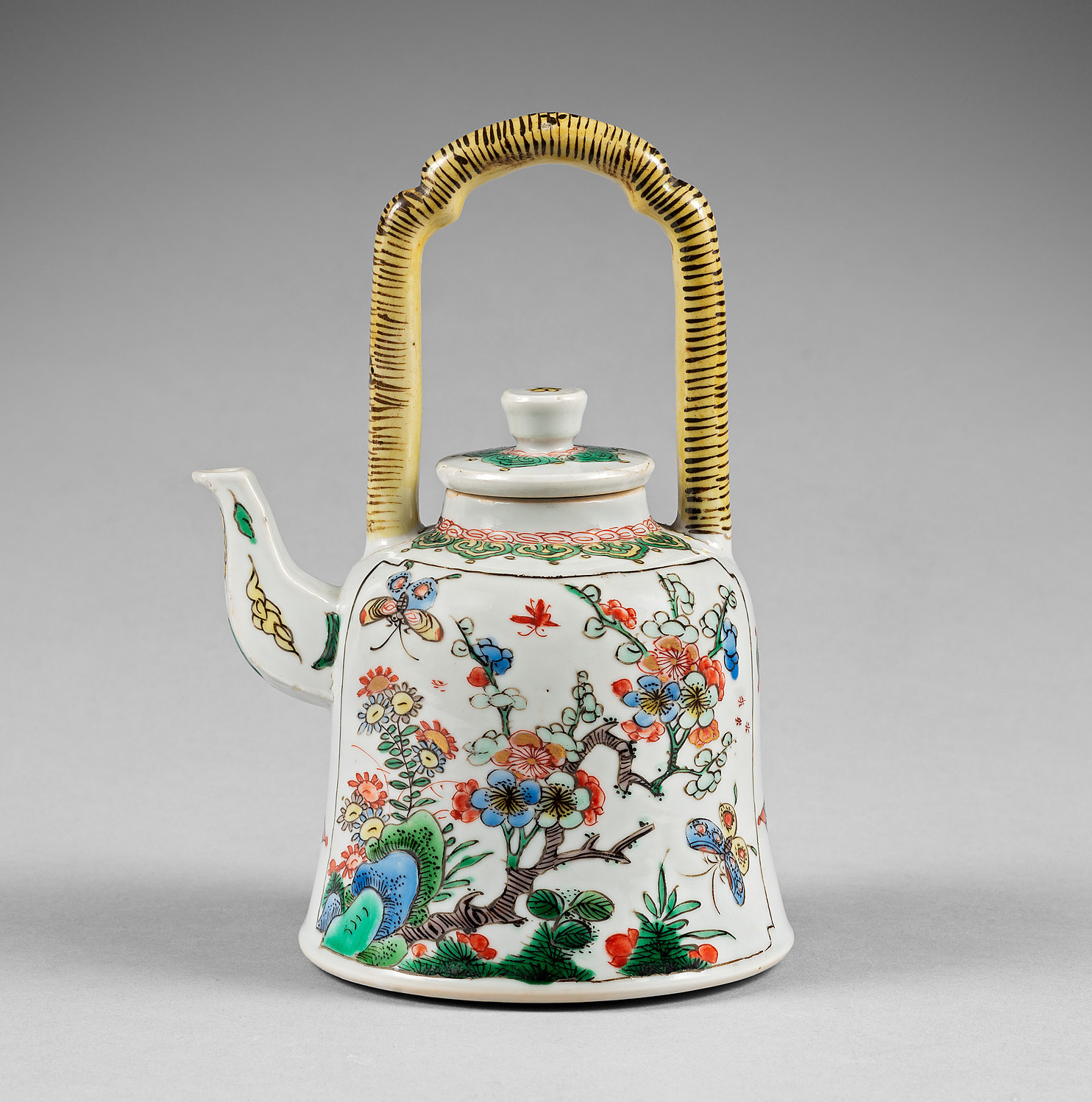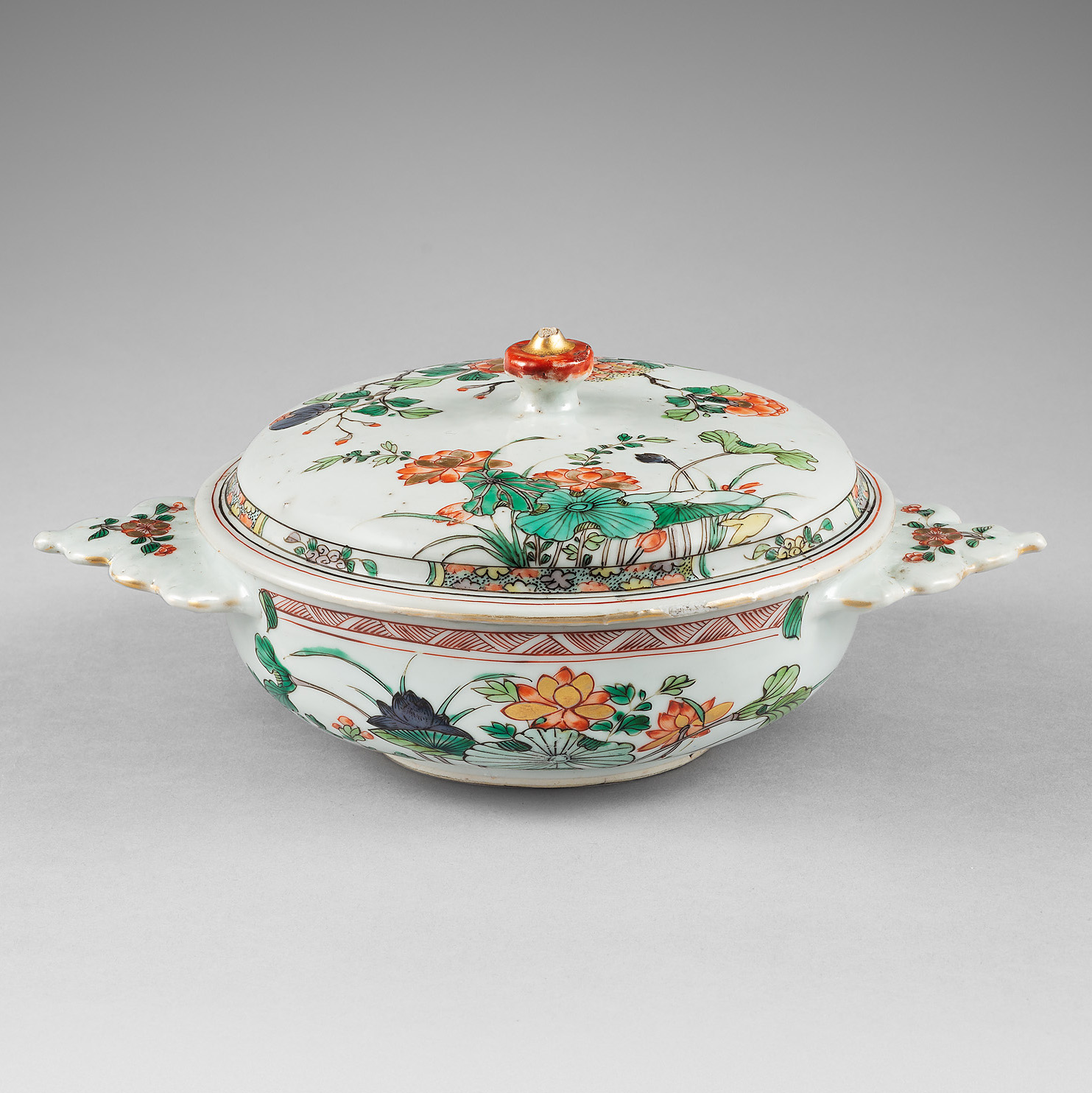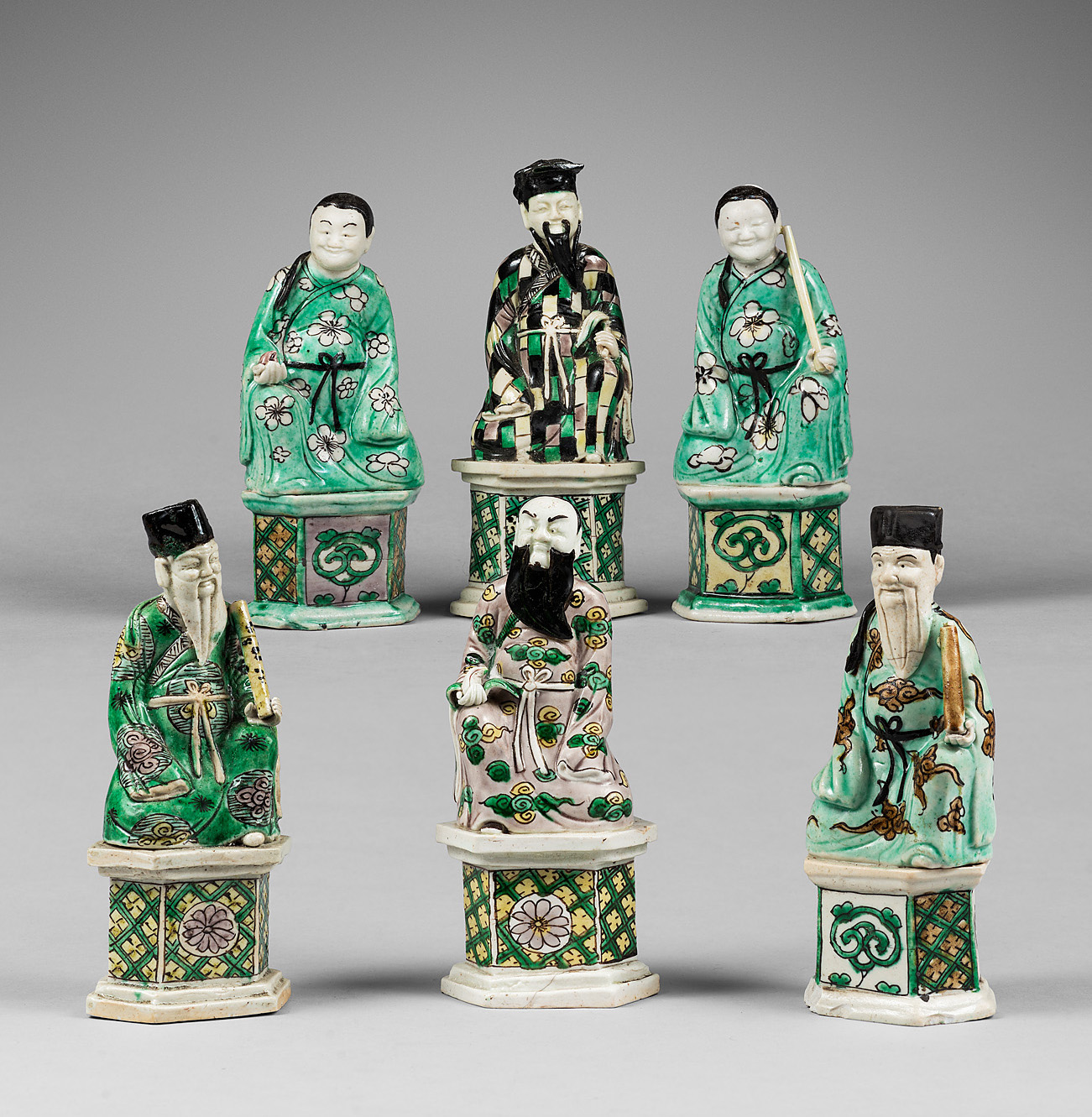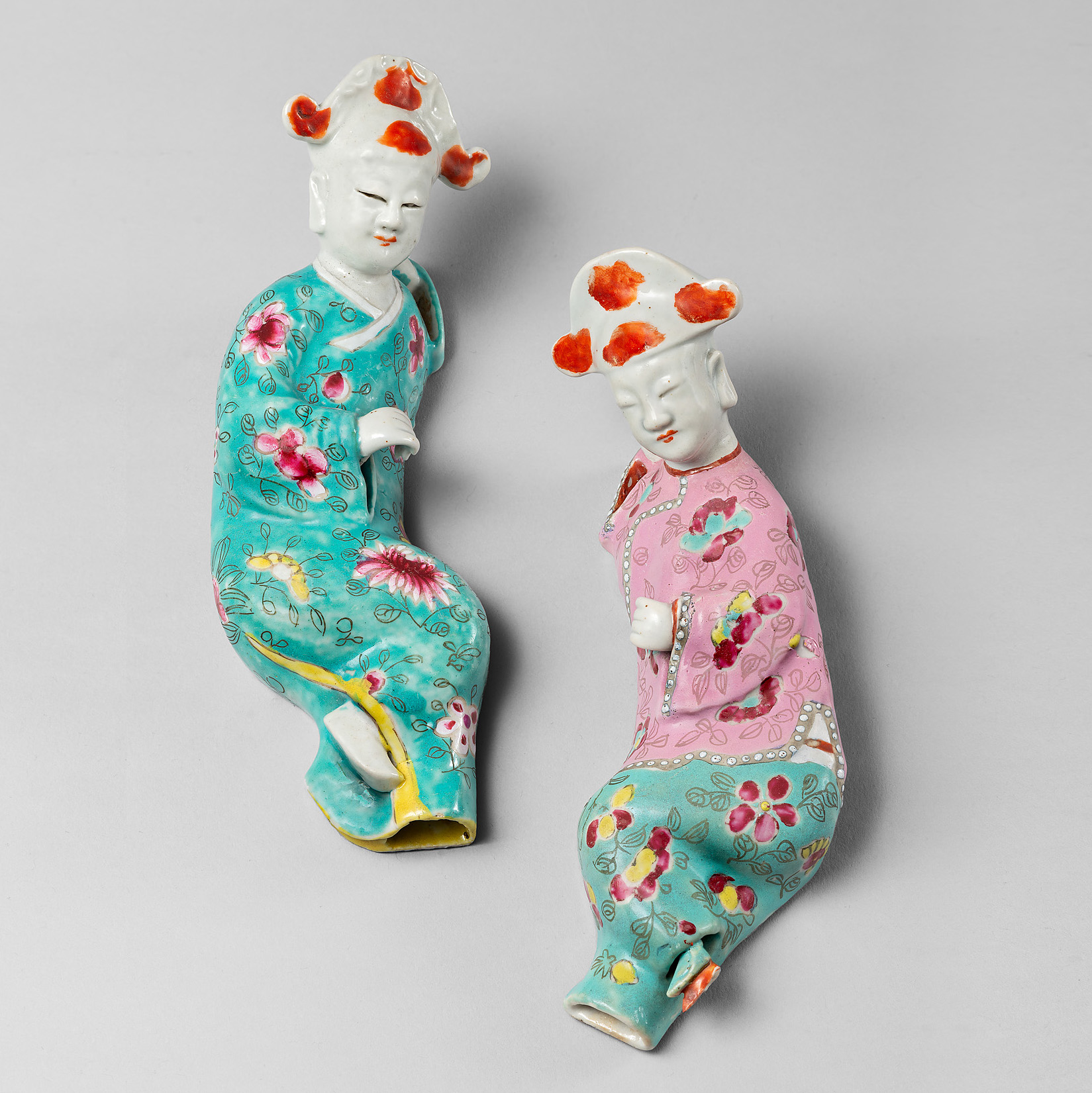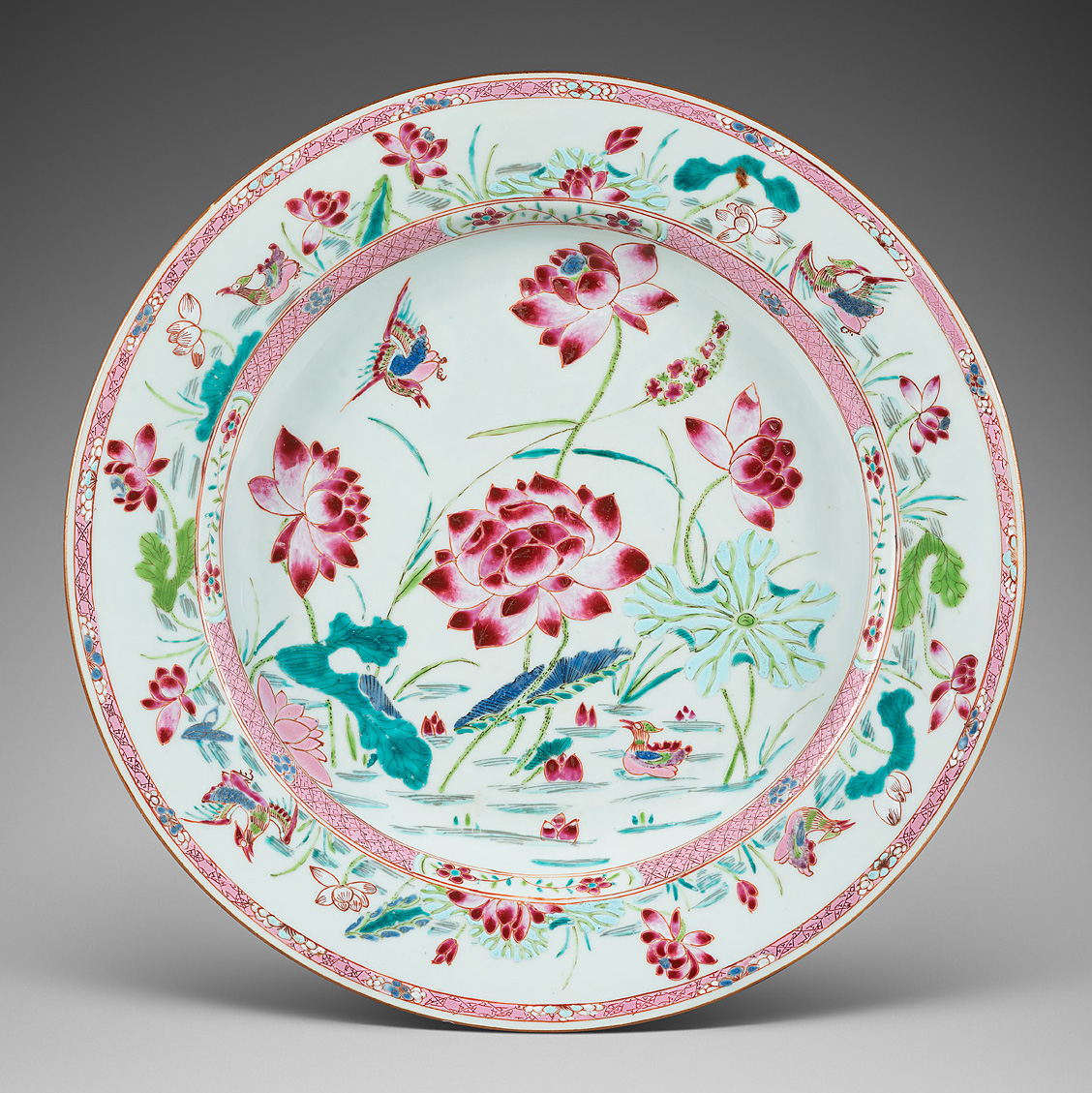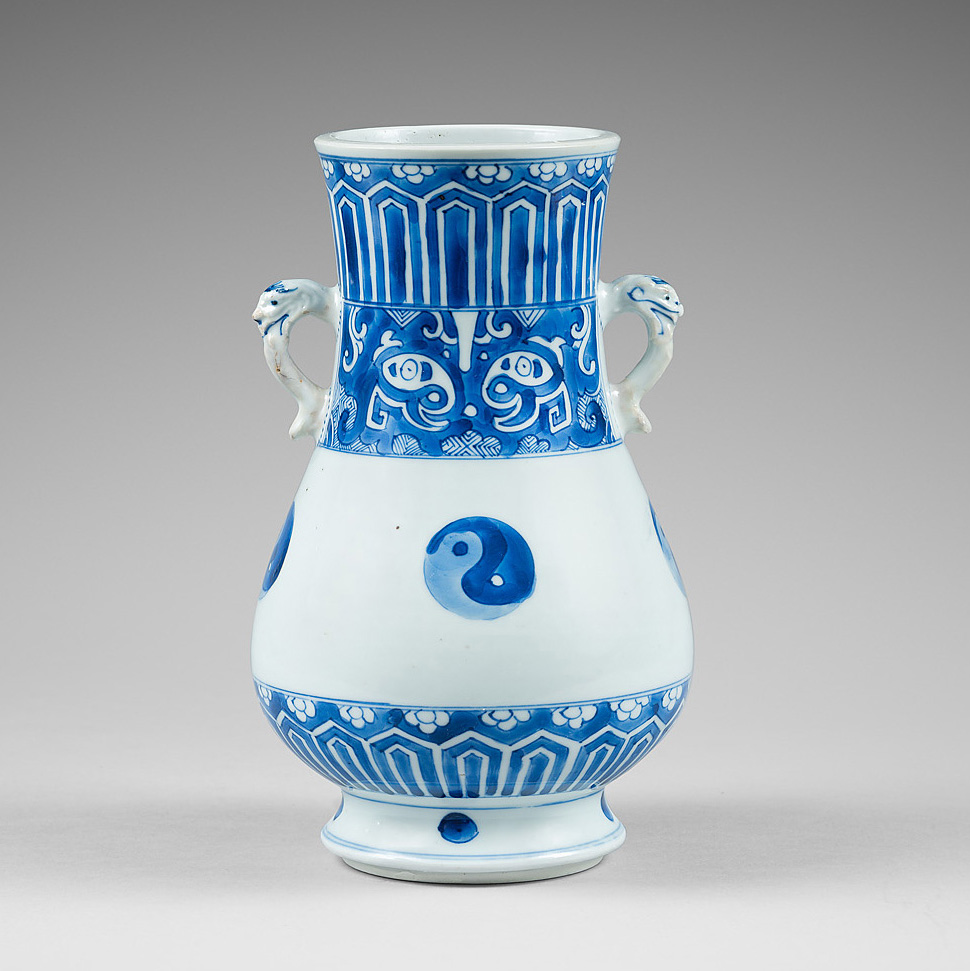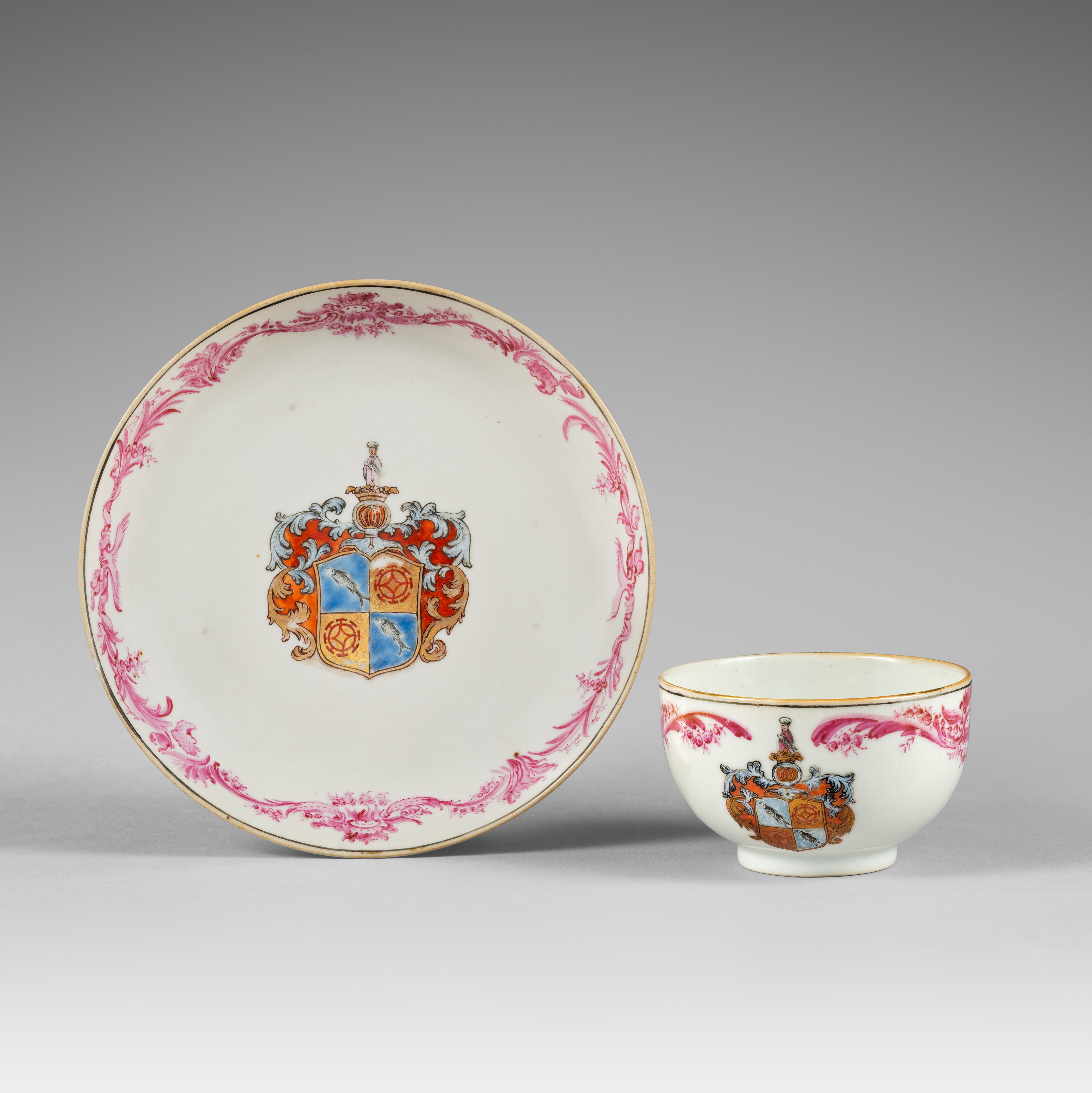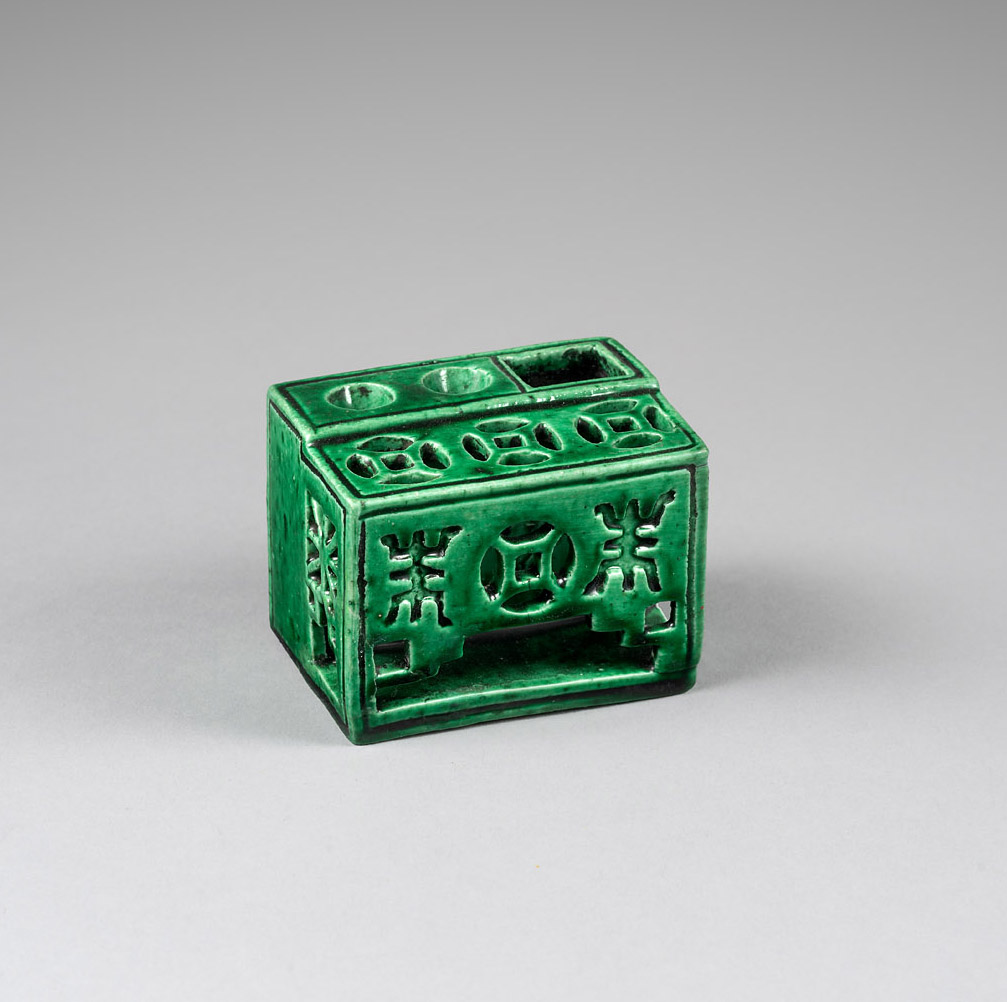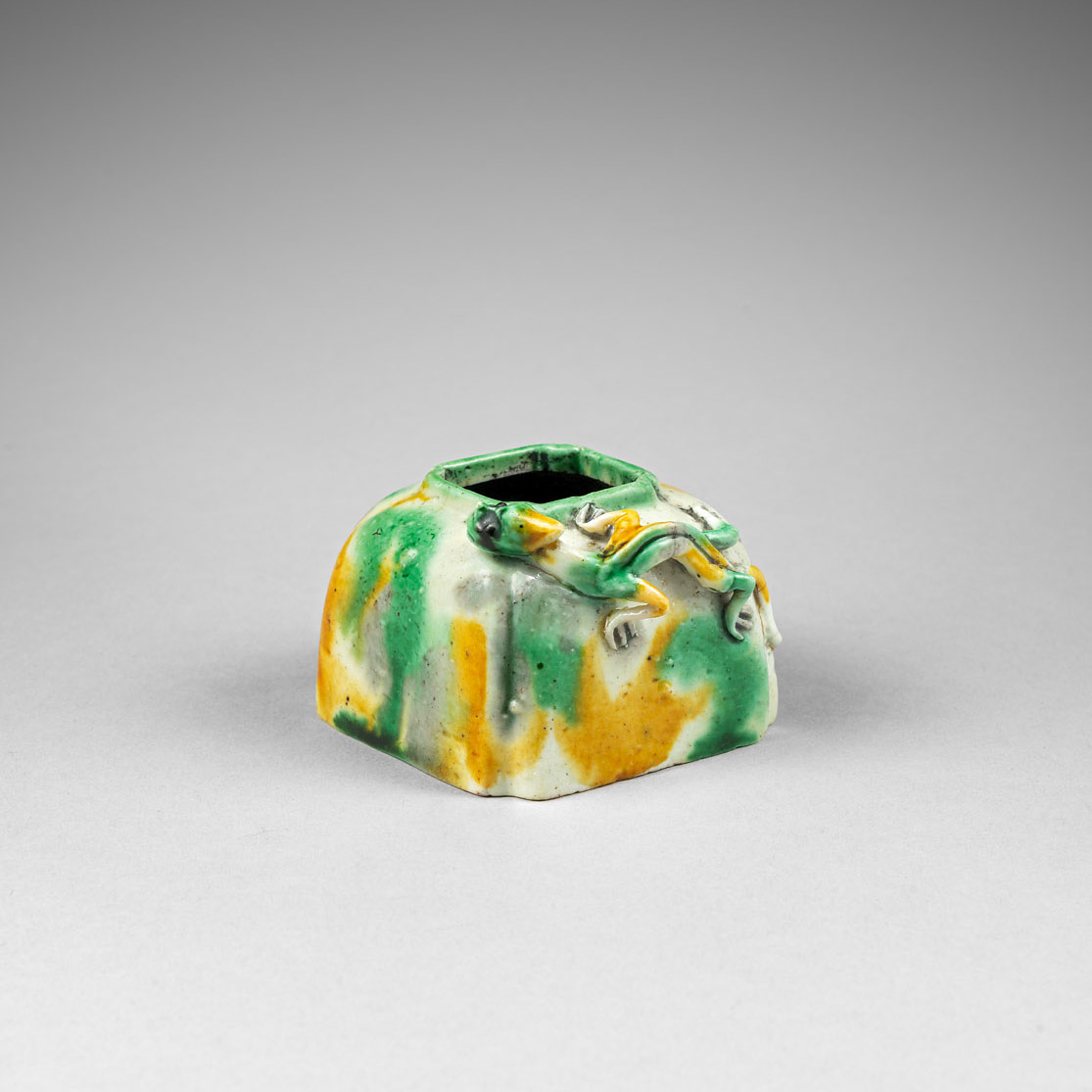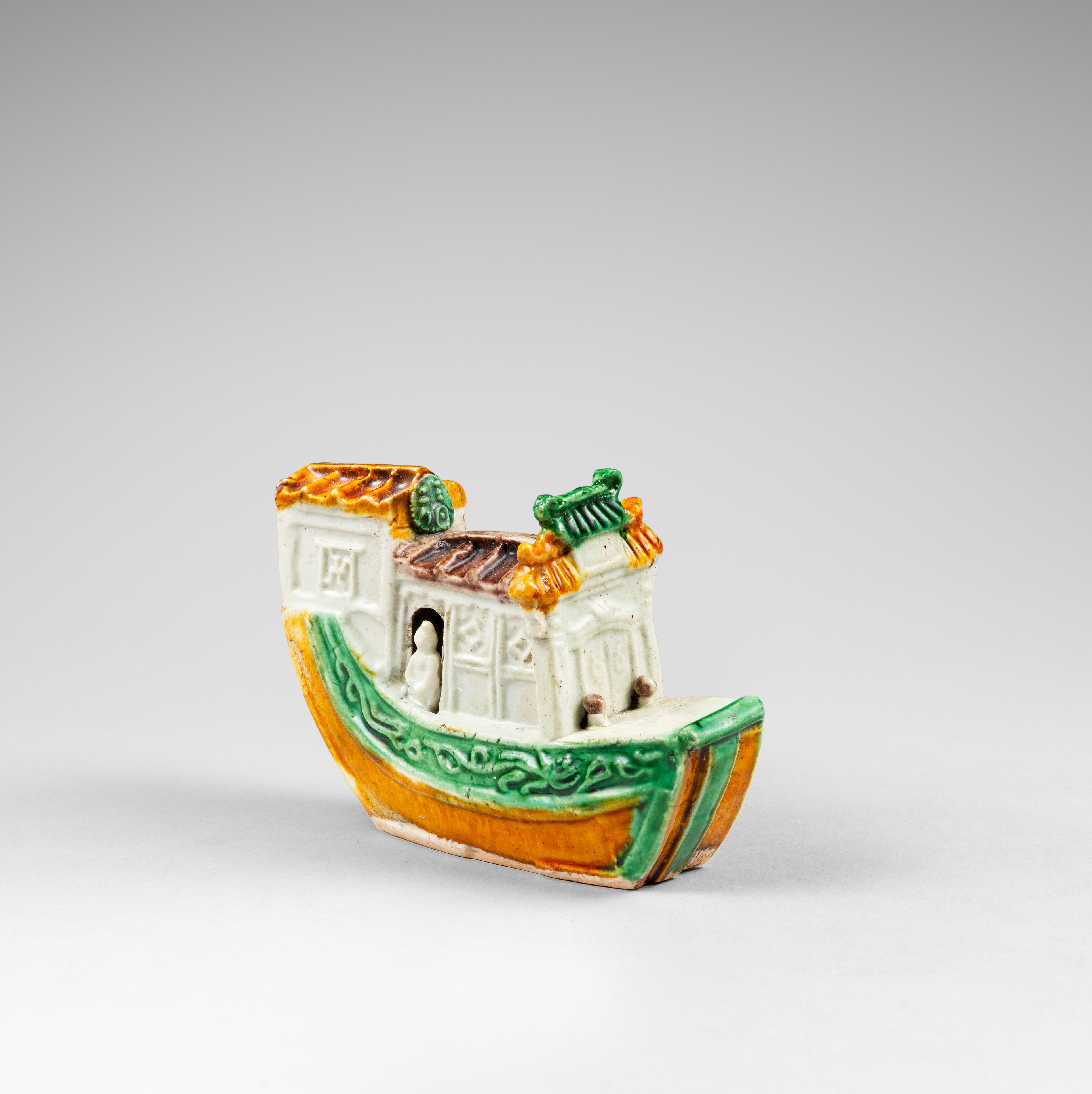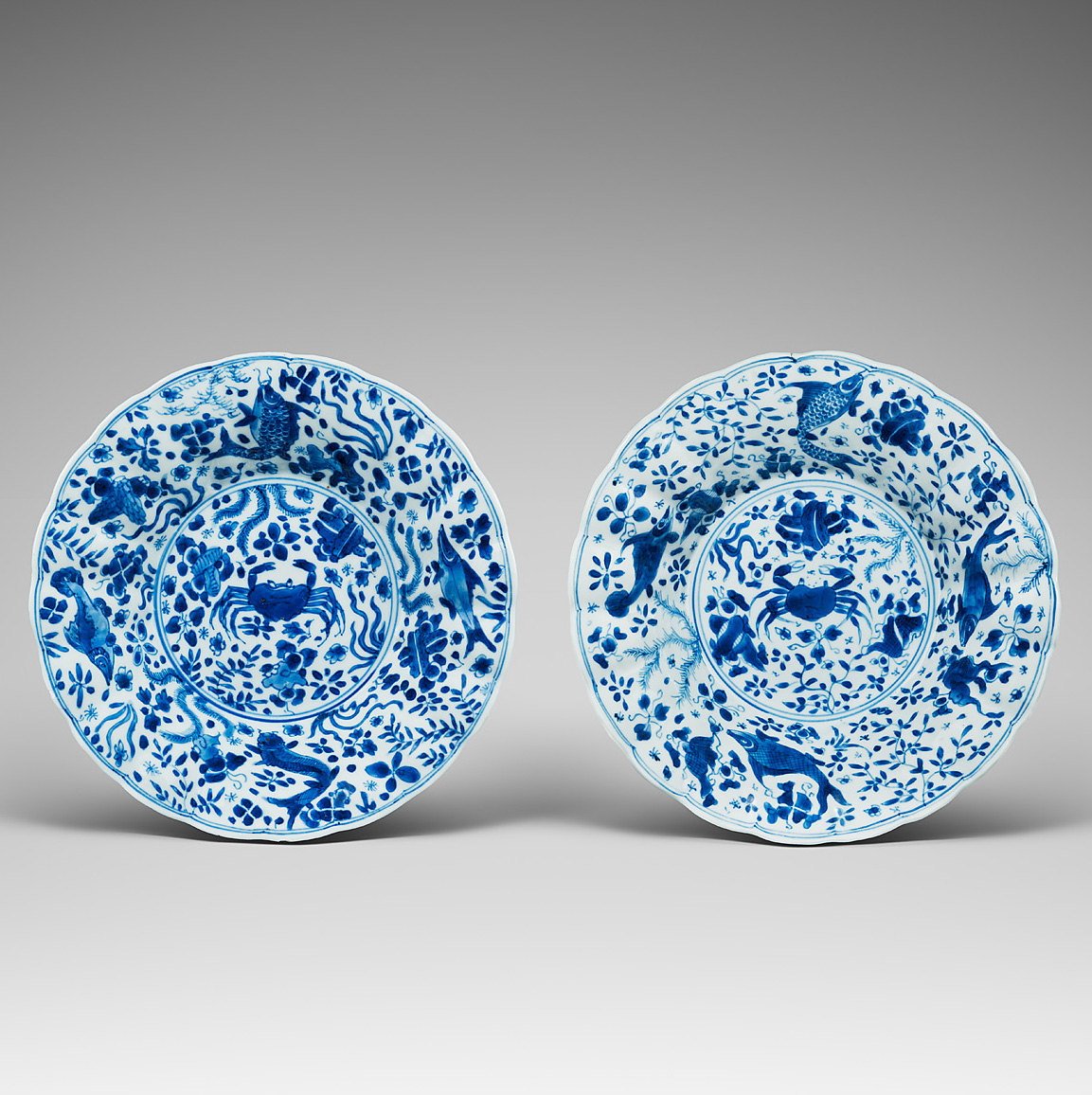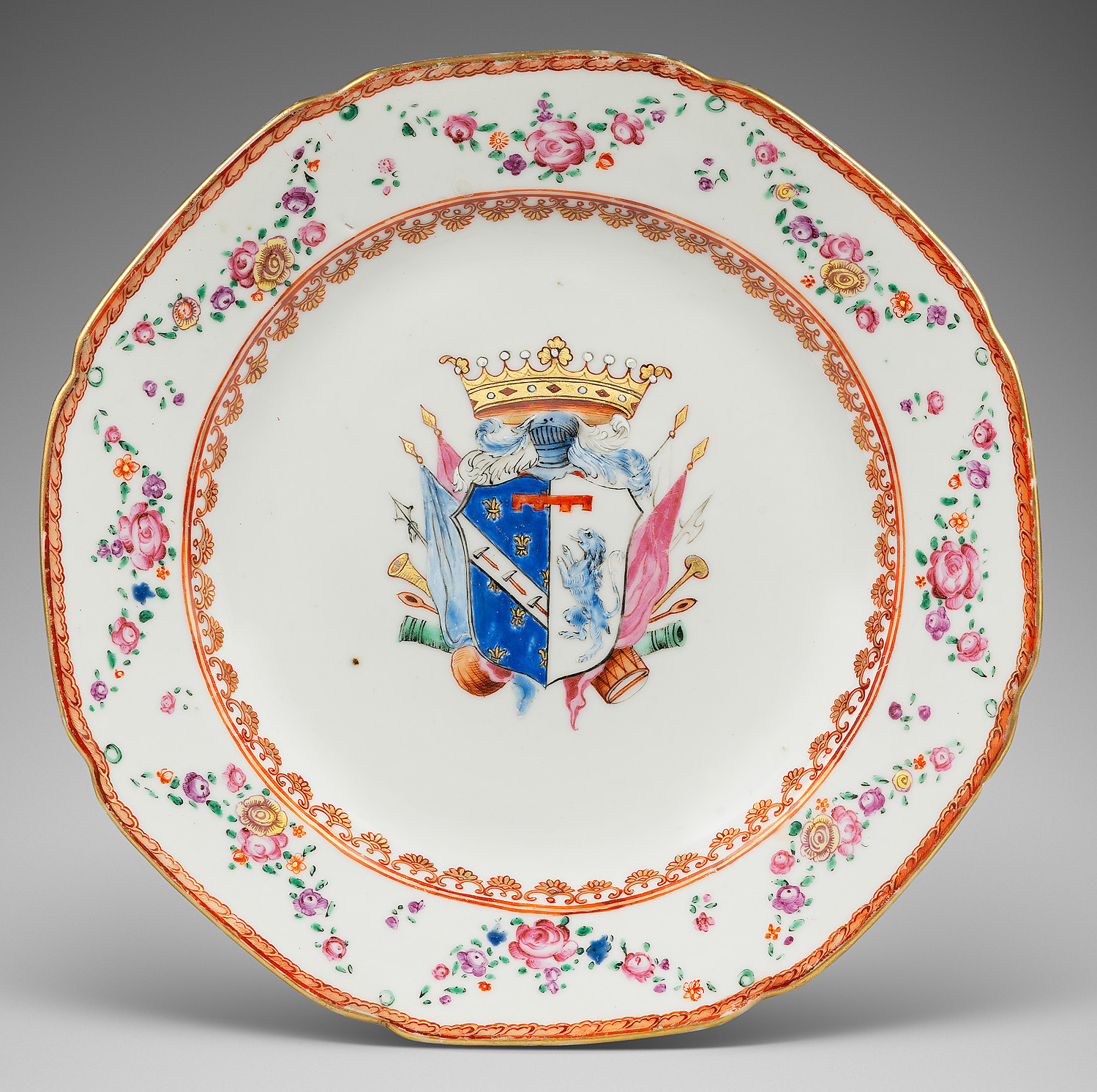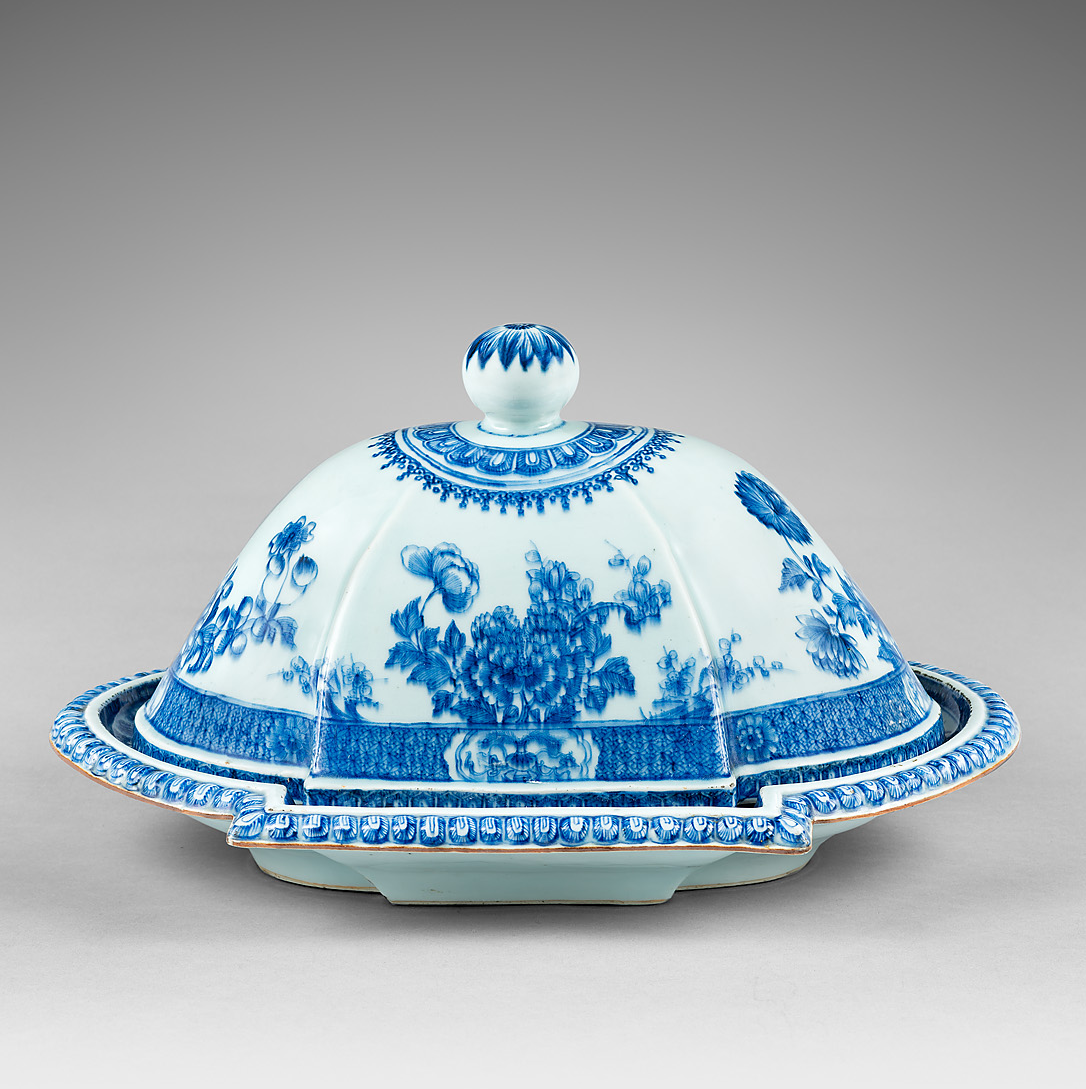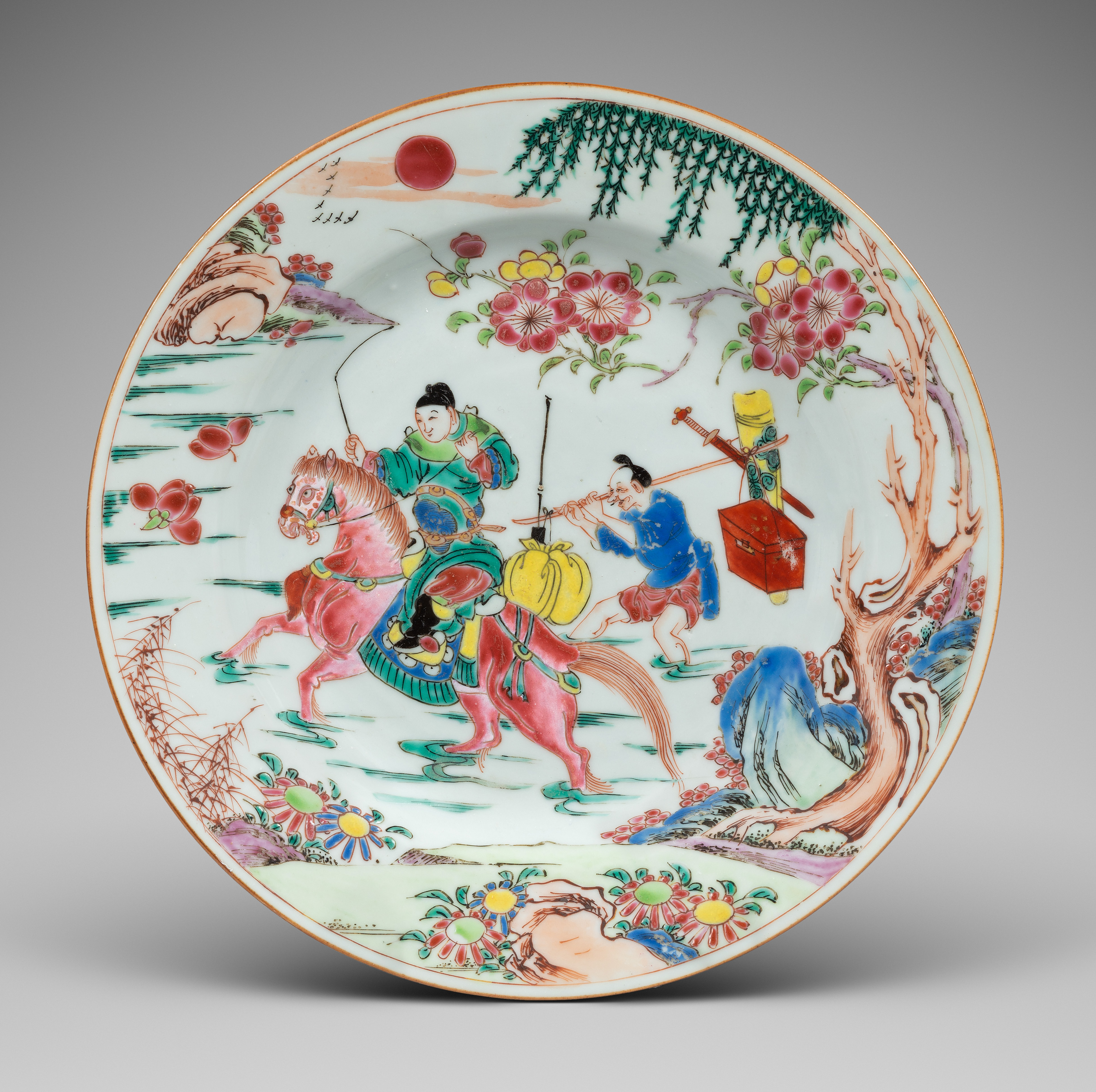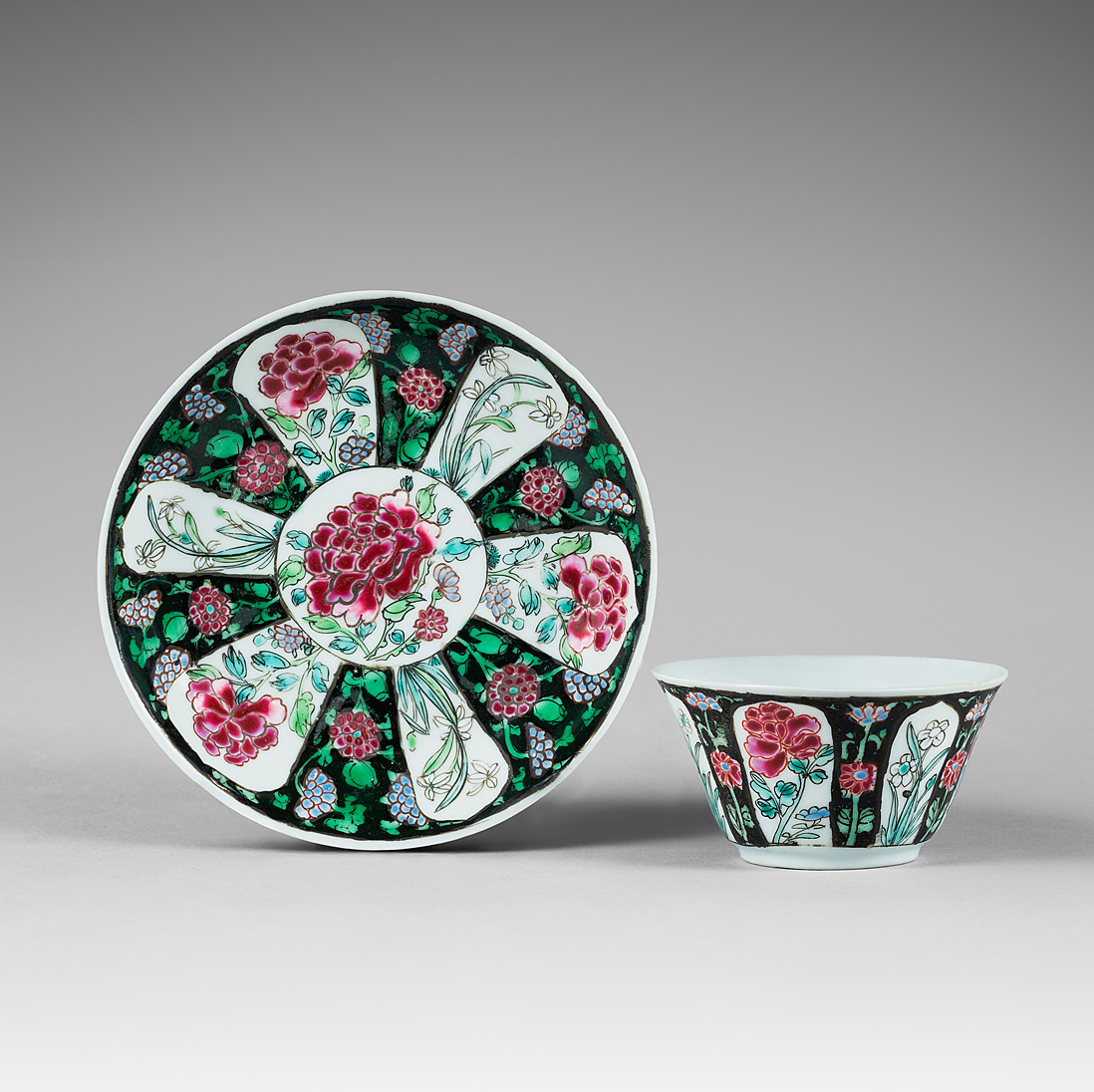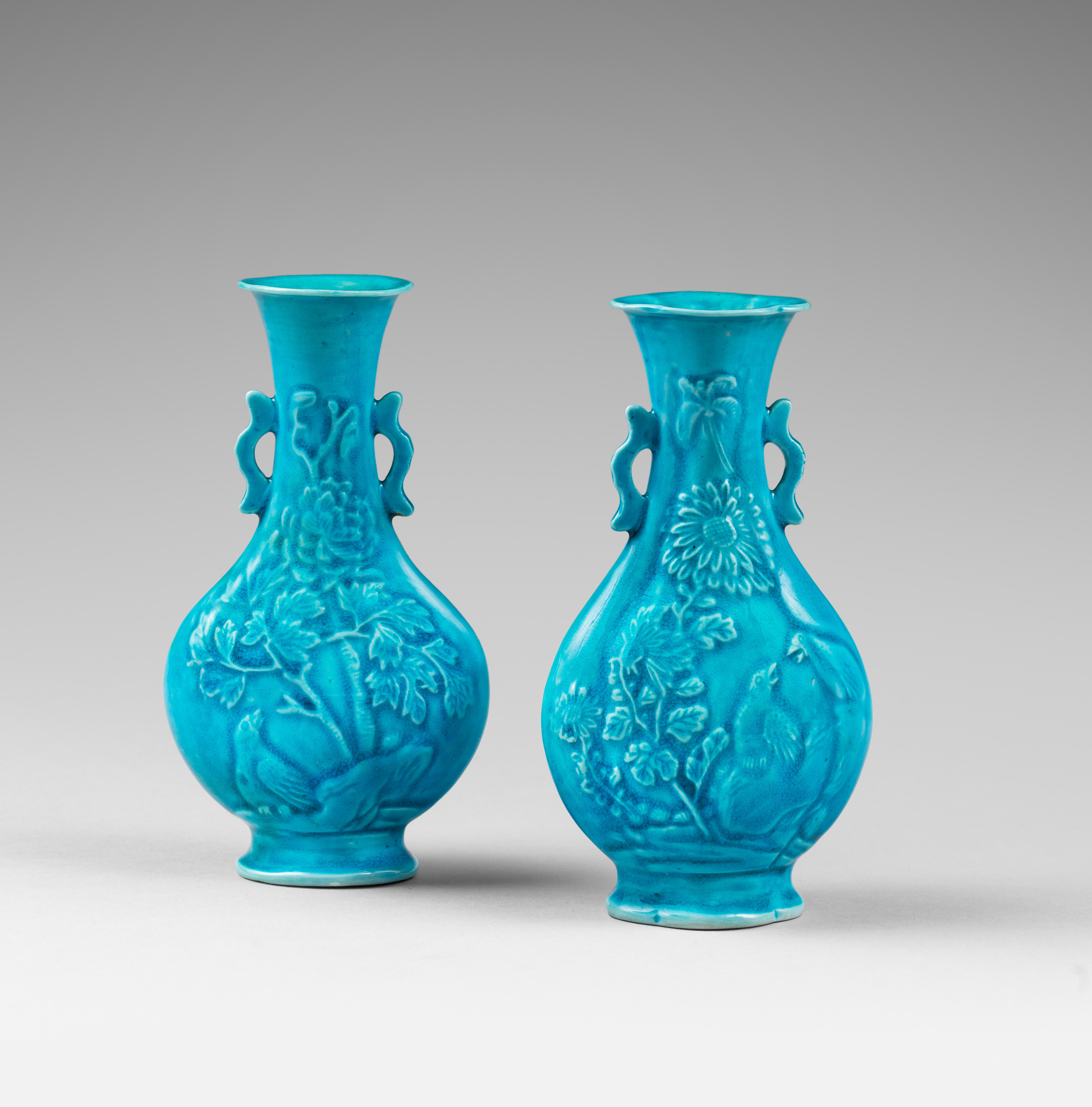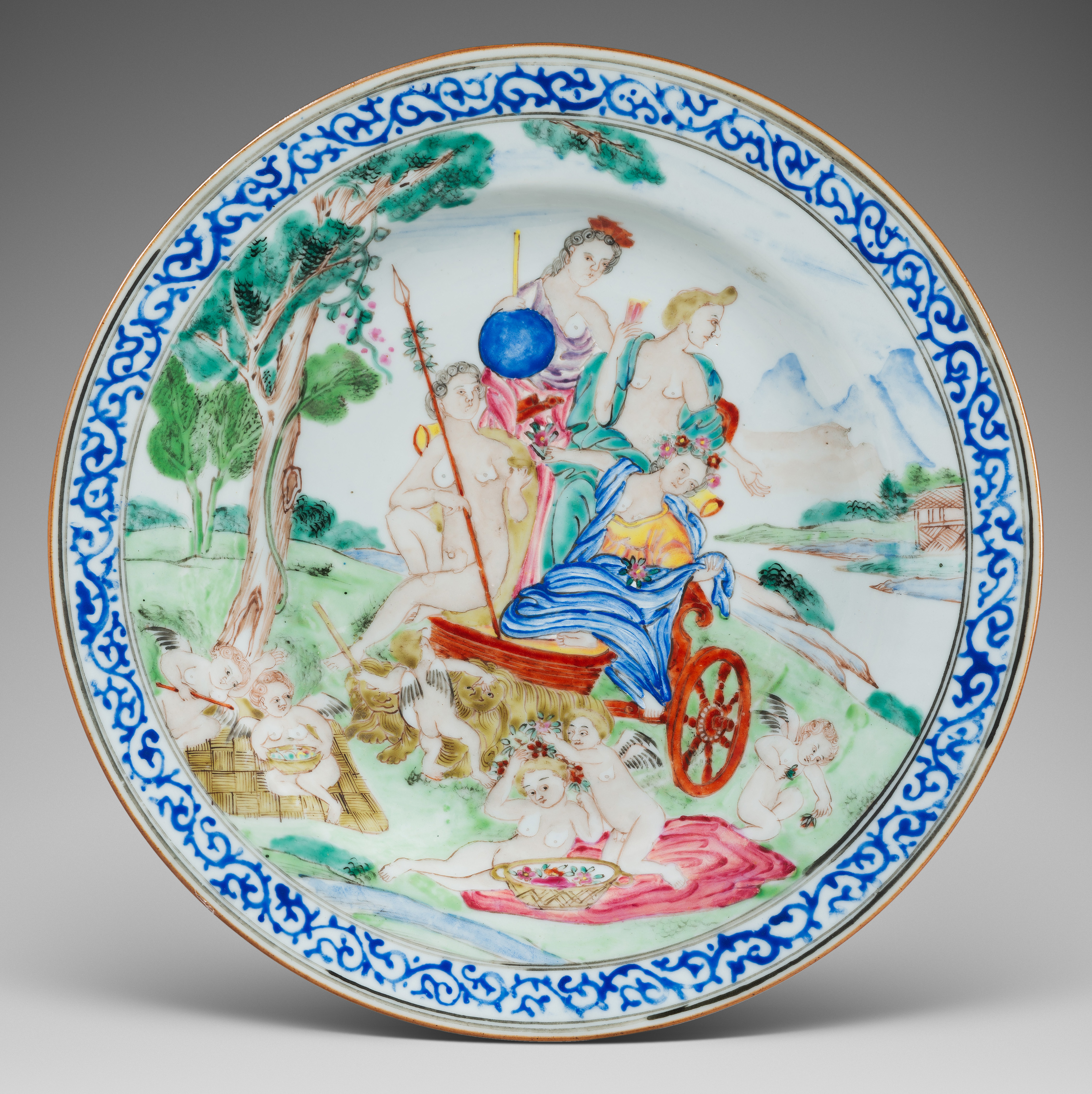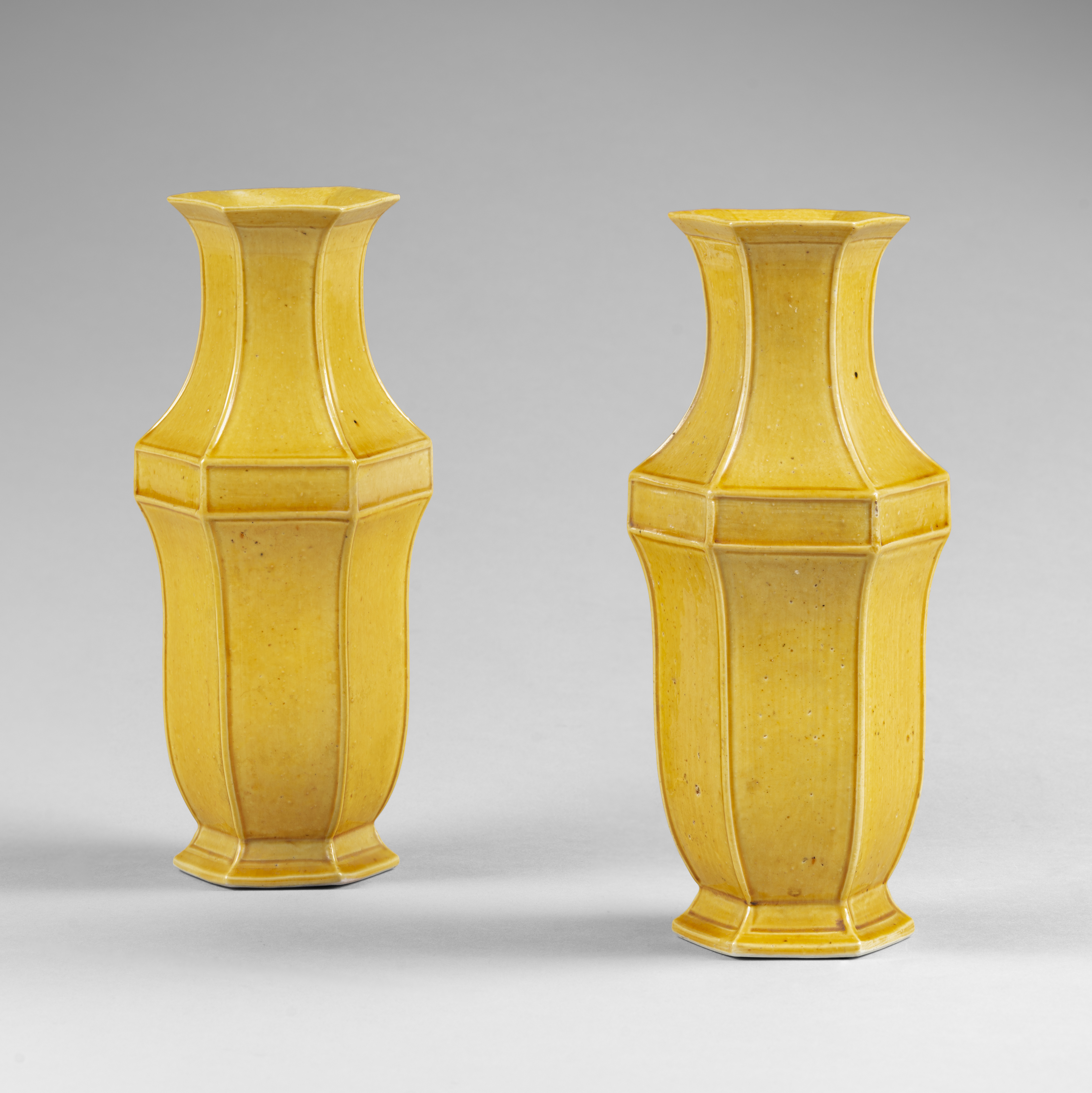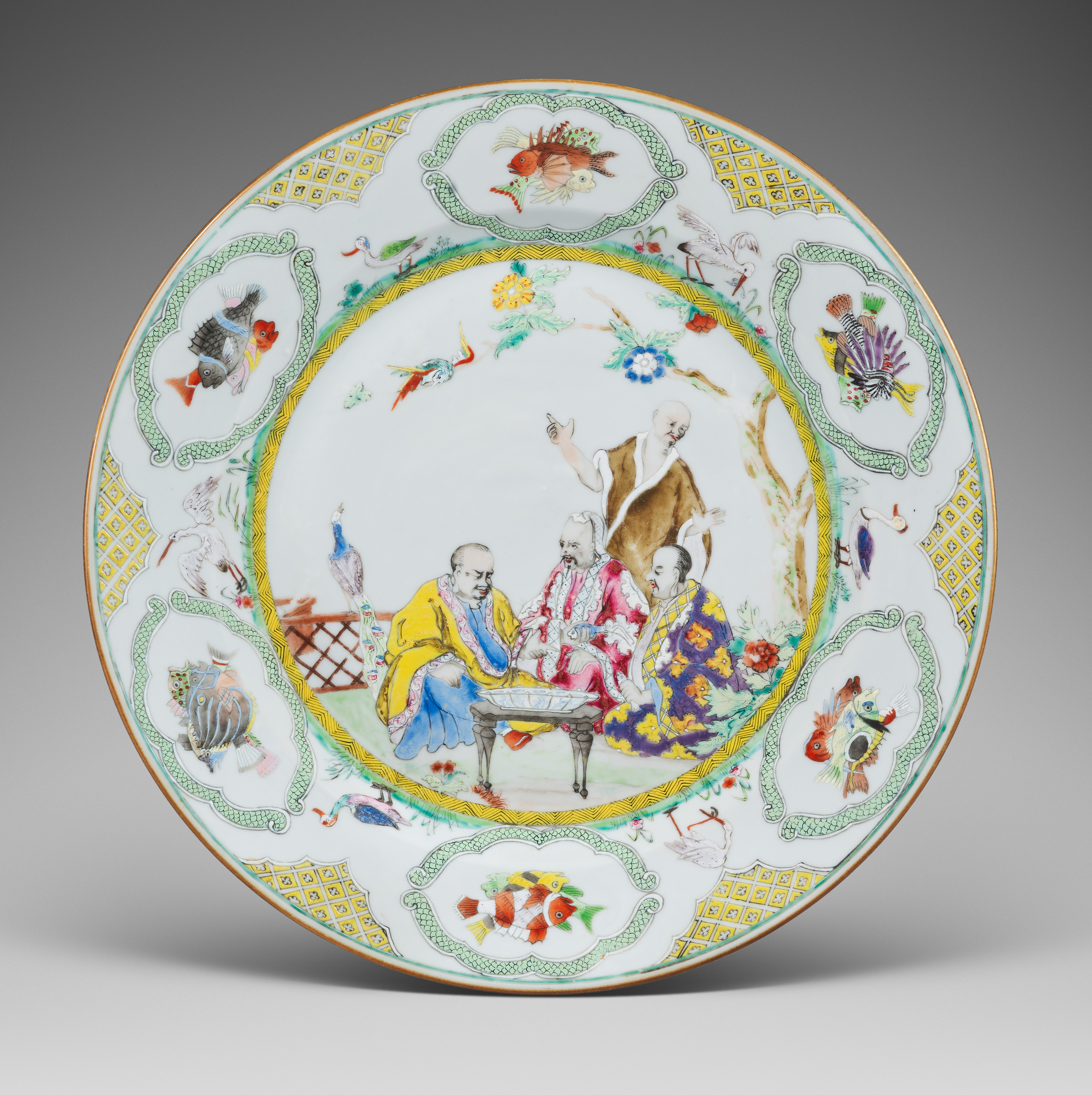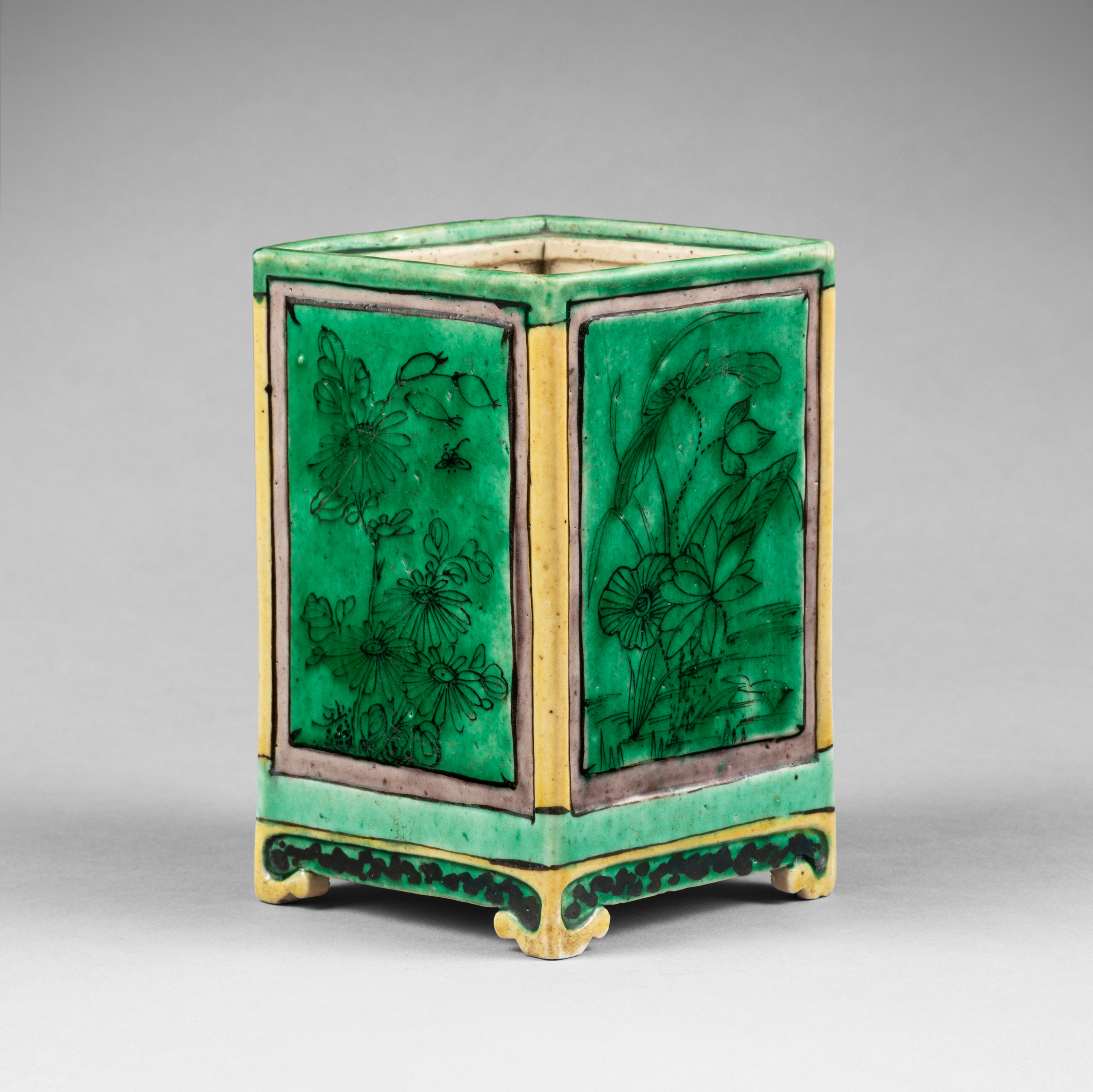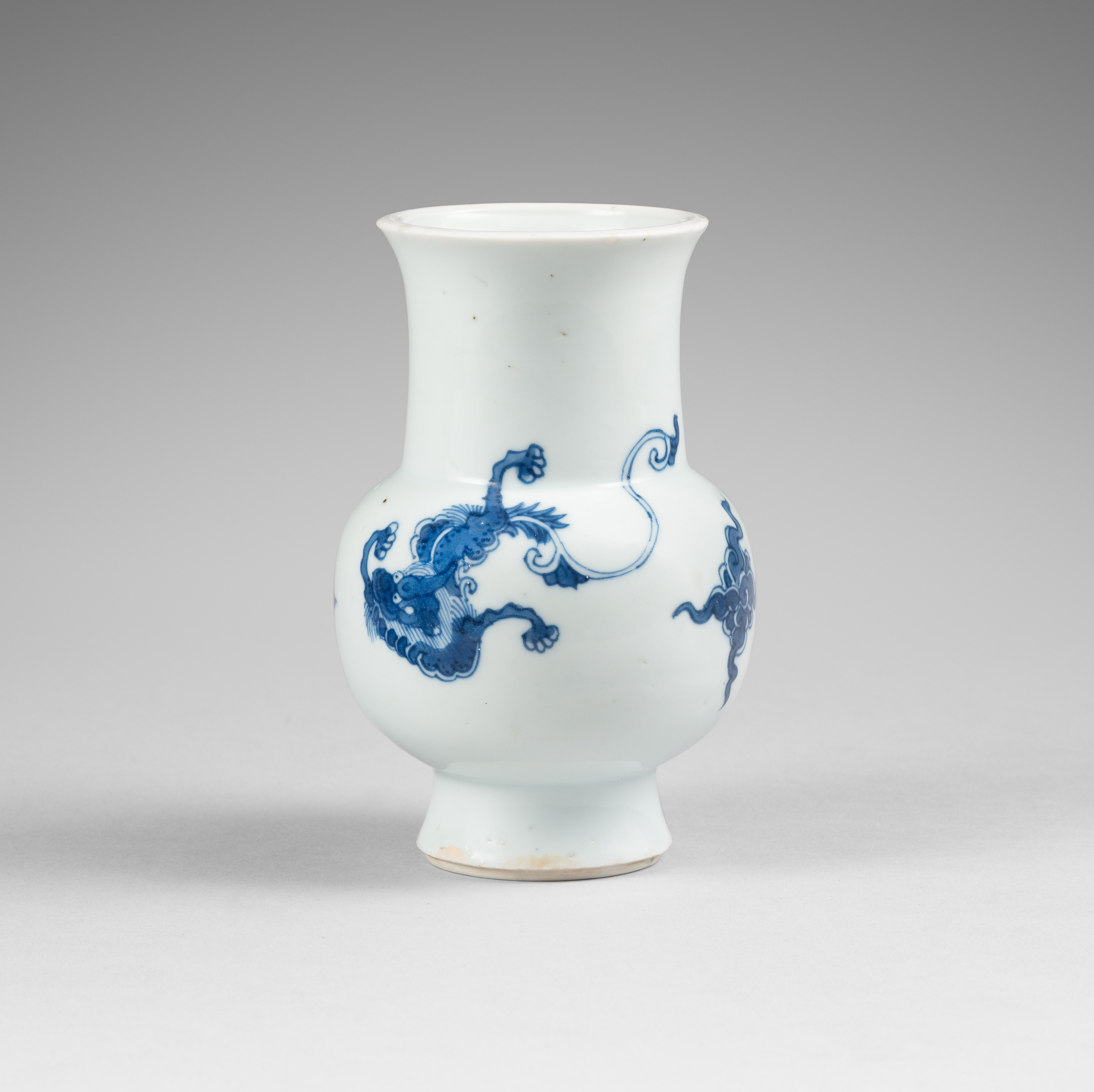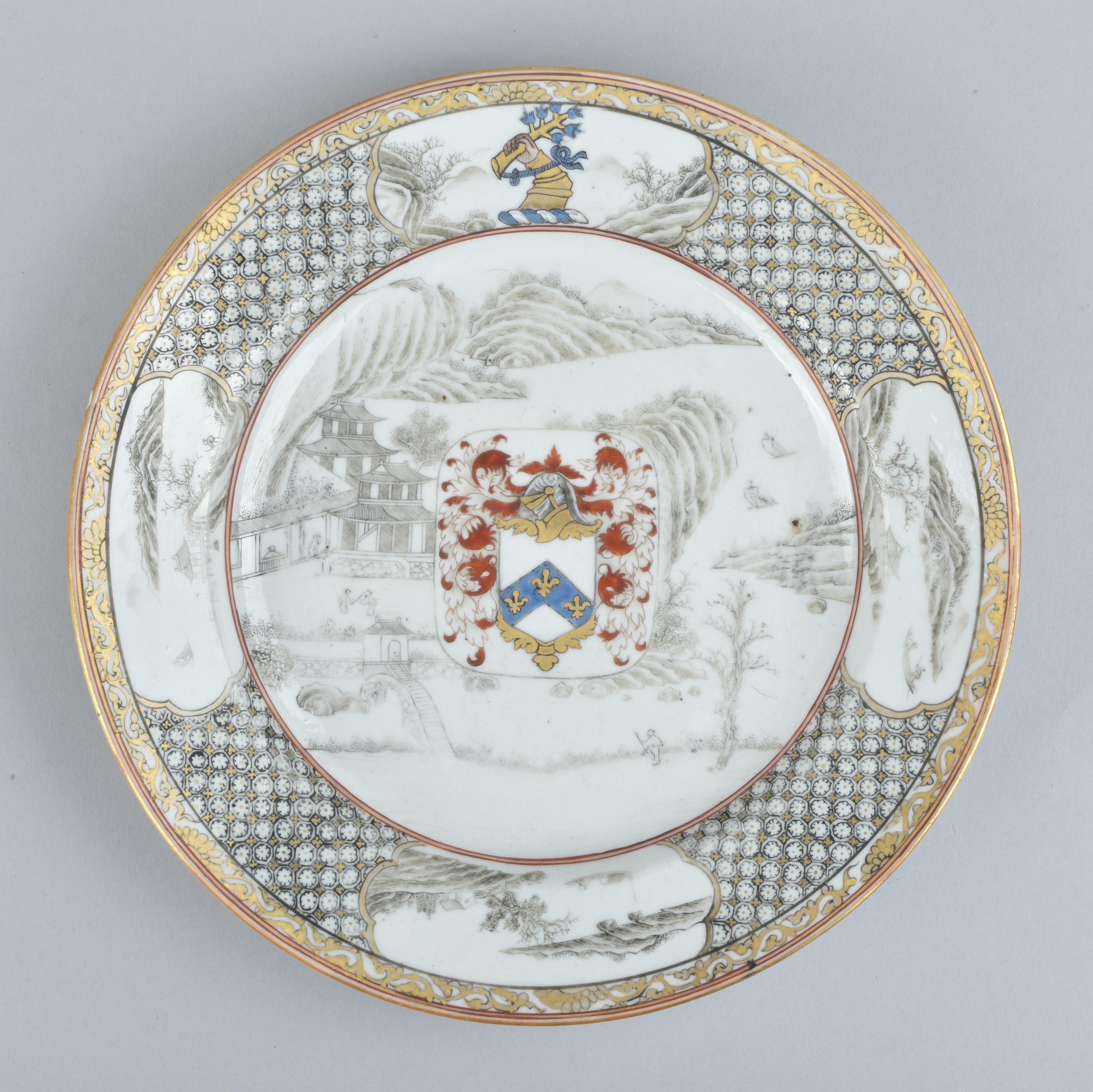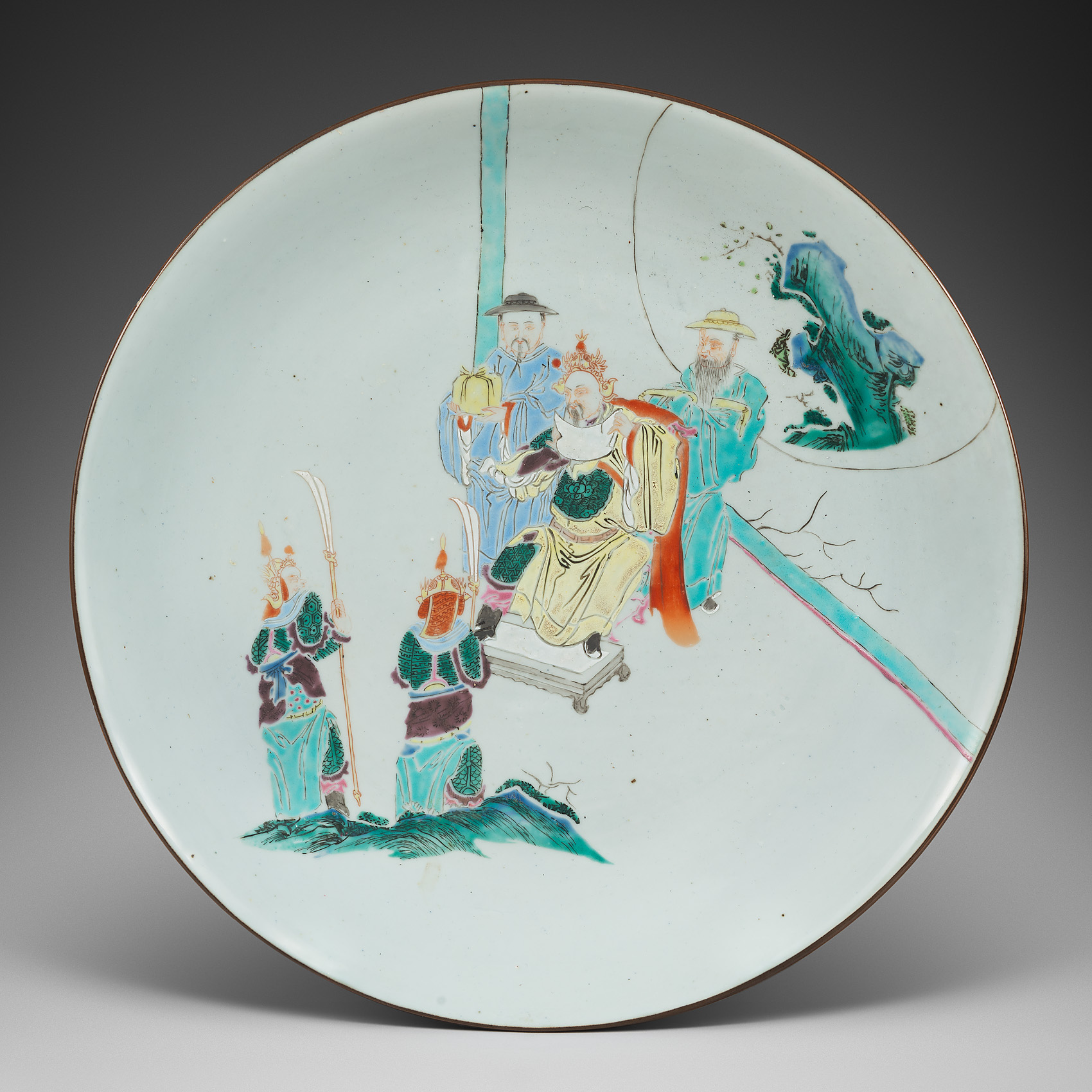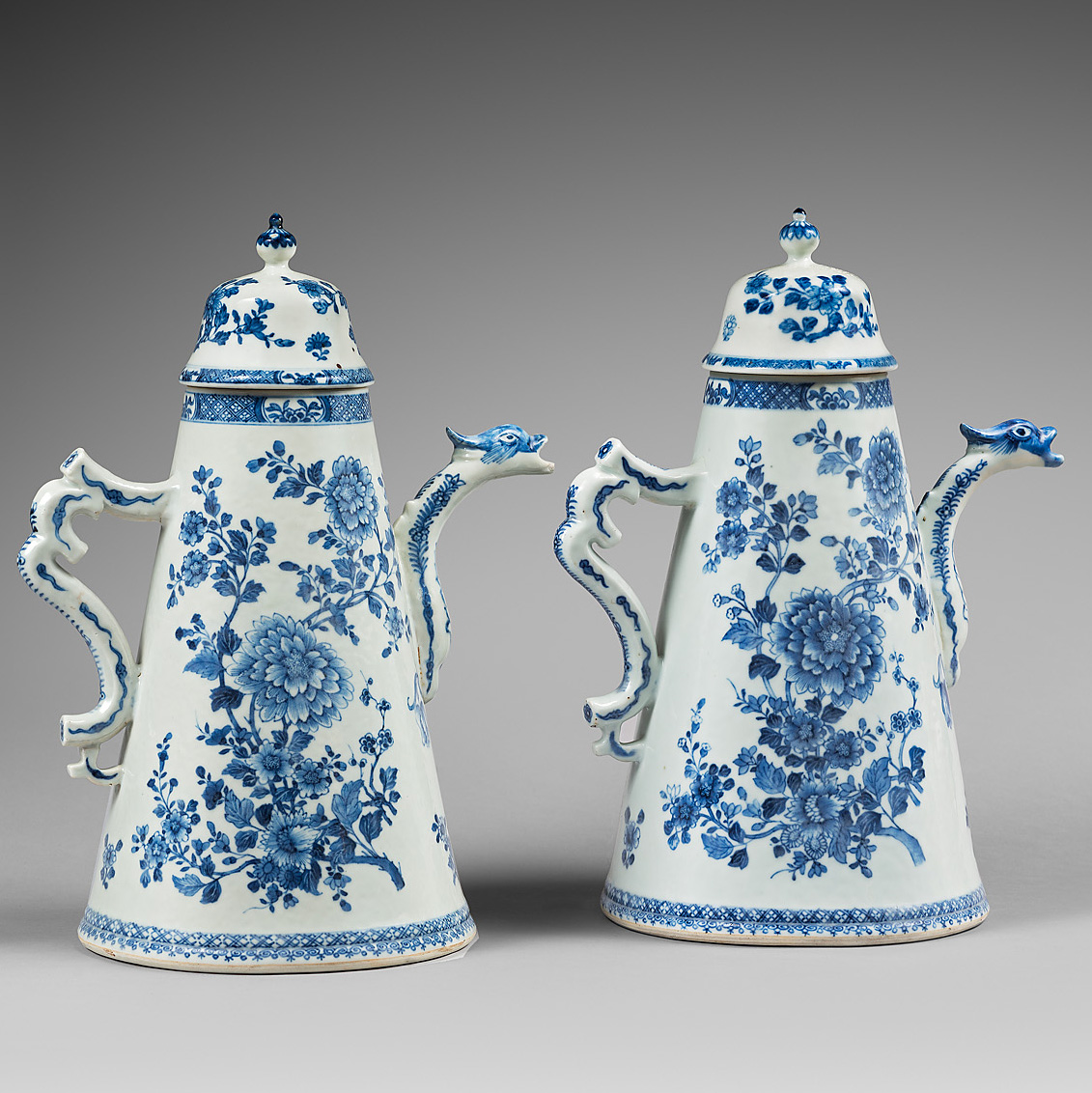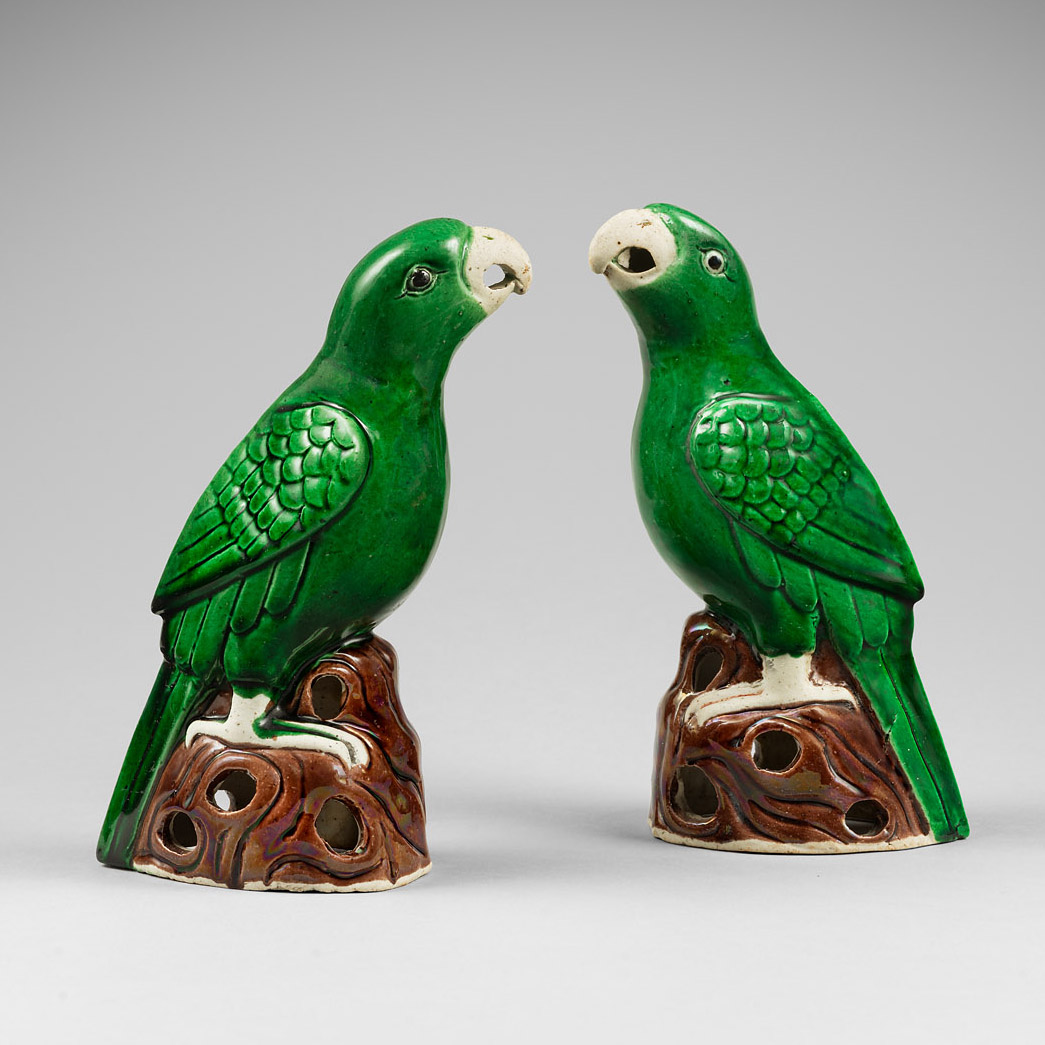
A fine pair of emerald green-glazed parrots. Kangxi
Naturalistically moulded in two halves, perched on a pierced rock work base and with folded wings with plump bodies. The plumage of the parrots very detailed, and glazed with a vibrant emerald green enameling.
- Country:
- China
- Period :
- Kangxi (1662-1722)
- Material:
- Porcelain
- Dimension:
- 7.48 in. (19 cm)
- Reference :
- D550
- Status:
- sold
Notice
In China, parrots are found in the wild in the warmer southern provinces. Other birds of the same genus such as macaws, cockatoos and parakeets, were imported and kept as caged bird in China for thousands of years. In the Tang dynasty (618-907), exotic birds were brought to the imperial court from Indochina and Indonesia. Emperor Xuanzong adopted a talking parrot as a pet and Emperor Taizong commissioned a rhapsody to be written about his own prized parrot.
They have fascinated Europeans, as the exotic birds themselves were introduced as domestic pets during the late fifteenth and early sixteenth century, living curiosities acquired during the explorations of Asia and America. Parrots were much admired for their colorful plumage, their art of mimicry and their longevity. Parrots were depicted in the still-life paintings of the seventeenth century, along with underglaze blue porcelains and exotic fruits from China and others ports.
During Kangxi reign (1662-1722), parrot depicted in various colors of porcelain, were popular in the West because of their vibrant and exotic appearance. During the 18th century, the taste for parrots was further encouraged by the fashion for exotic orientalist, when having live parrots was also popular. Models of small parrots were found in the VOC wreck Oosterland which sank in 1697.
Among early examples of famille verte parrots are those mounted in gilt bronze as part of chandeliers which were installed in royal European castles, as the palace of Versailles.
Photography : Jérémie Beylard / Agence PHAR


